The Struggle for Pakistan: A Muslim Homeland and Global Politics
By: Ayesha Jalal
-
Rs 8,095.50
- Rs 8,995.00
- 10%
-

You save Rs 899.50.
Due to constant currency fluctuation, prices are subject to change with or without notice.
“[An] important book…Ayesha Jalal has been one of the first and most reliable [Pakistani] political historians [on Pakistan]…The Struggle for Pakistan [is] her most accessible work to date…She is especially telling when she points to the lack of serious academic or political debate in Pakistan about the role of the military.”
―Ahmed Rashid, New York Review of Books
“[Jalal] shows that Pakistan never went off the rails; it was, moreover, never a democracy in any meaningful sense. For its entire history, a military caste and its supporters in the ruling class have formed an ‘establishment’ that defined their narrow interests as the nation’s.”
―Isaac Chotiner, Wall Street Journal
“[An] important book…Ayesha Jalal has been one of the first and most reliable [Pakistani] political historians [on Pakistan]…The Struggle for Pakistan [is] her most accessible work to date…She is especially telling when she points to the lack of serious academic or political debate in Pakistan about the role of the military.”
―Ahmed Rashid, New York Review of Books
“[Jalal] shows that Pakistan never went off the rails; it was, moreover, never a democracy in any meaningful sense. For its entire history, a military caste and its supporters in the ruling class have formed an ‘establishment’ that defined their narrow interests as the nation’s.”
―Isaac Chotiner, Wall Street Journal
My First Planner: Daily Schedule for Kids
By: Ayesha Jalal
Rs 1,275.00 Rs 1,500.00 Ex Tax :Rs 1,275.00
The Struggle for Pakistan: A Muslim Homeland and Global Politics
By: Ayesha Jalal
Rs 8,095.50 Rs 8,995.00 Ex Tax :Rs 8,095.50
Zubin Mehta: A Musical Journey (An Authorized Biography)
By: VOID - Bakhtiar K. Dadabhoy
Rs 892.50 Rs 1,050.00 Ex Tax :Rs 892.50
Arab Feminisms: Gender and Equality in the Middle East (Contemporary Arab Scholarship in the Social Sciences)
By: Jean Makdisi
Rs 7,645.75 Rs 8,995.00 Ex Tax :Rs 7,645.75
The Origins of Political Order From Prehuman Times to the French RevolutioN
By: Francis Fukuyama
Rs 4,045.50 Rs 4,495.00 Ex Tax :Rs 4,045.50
Manning Up: How the Rise of Women Has Turned Men into Boys
By: Kay Hymowitz
Rs 845.75 Rs 995.00 Ex Tax :Rs 845.75
The Obama Syndrome: Surrender At Home War Abroad
By: Tariq Ali
Rs 1,100.75 Rs 1,295.00 Ex Tax :Rs 1,100.75
The Quest For Meaning: Developing A Philosophy Of Pluralism
By: Tariq Ramadan
Rs 1,185.75 Rs 1,395.00 Ex Tax :Rs 1,185.75
The Pakistan US Conundrum Jihadists The Military And The People The Struggle For Control
By: Yunas Samad
Rs 1,185.75 Rs 1,395.00 Ex Tax :Rs 1,185.75
An Enemy We Created: The Myth Of The Taliban Al Qaeda Merger In Afghanistan 19702010
By: Alex Strick van Linschoten
Rs 4,197.50 Rs 8,395.00 Ex Tax :Rs 4,197.50
WikiLeaks: Inside Julian Assanges War on Secrecy
By: David Leigh & Luke Harding
Rs 637.50 Rs 850.00 Ex Tax :Rs 637.50
Arab Feminisms: Gender and Equality in the Middle East (Contemporary Arab Scholarship in the Social Sciences)
By: Jean Makdisi
Rs 7,645.75 Rs 8,995.00 Ex Tax :Rs 7,645.75
The Case for Keto: Rethinking Weight Control and the Science and Practice of Low-Carb/High-Fat Eating
By: Gary Taubes
Rs 3,395.75 Rs 3,995.00 Ex Tax :Rs 3,395.75
The Dairy-Free & Gluten-Free Kitchen Paperback
By: Denise Jardine
Rs 1,695.75 Rs 1,995.00 Ex Tax :Rs 1,695.75
Zubin Mehta: A Musical Journey (An Authorized Biography)
By: VOID - Bakhtiar K. Dadabhoy
Rs 892.50 Rs 1,050.00 Ex Tax :Rs 892.50
My First Planner: Daily Schedule for Kids
By: Ayesha Jalal
Rs 1,275.00 Rs 1,500.00 Ex Tax :Rs 1,275.00
The Struggle for Pakistan: A Muslim Homeland and Global Politics
By: Ayesha Jalal
Rs 8,095.50 Rs 8,995.00 Ex Tax :Rs 8,095.50
Arab Feminisms: Gender and Equality in the Middle East (Contemporary Arab Scholarship in the Social Sciences)
By: Jean Makdisi
Rs 7,645.75 Rs 8,995.00 Ex Tax :Rs 7,645.75












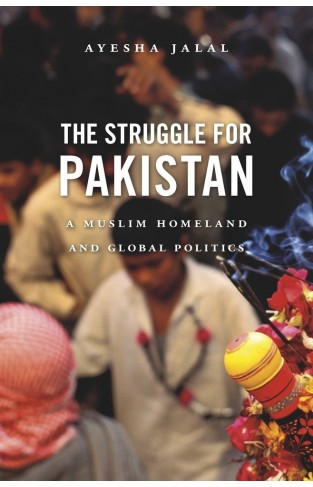
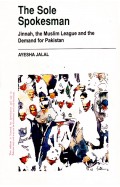


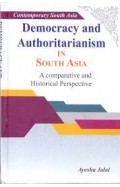
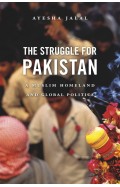

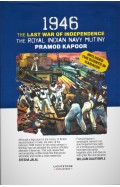
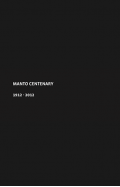

-120x187.jpg?q6)





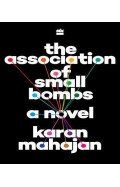
-120x187.jpg?q6)

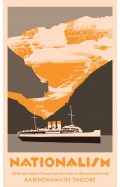
-120x187.jpg?q6)



-120x187.jpg?q6)










